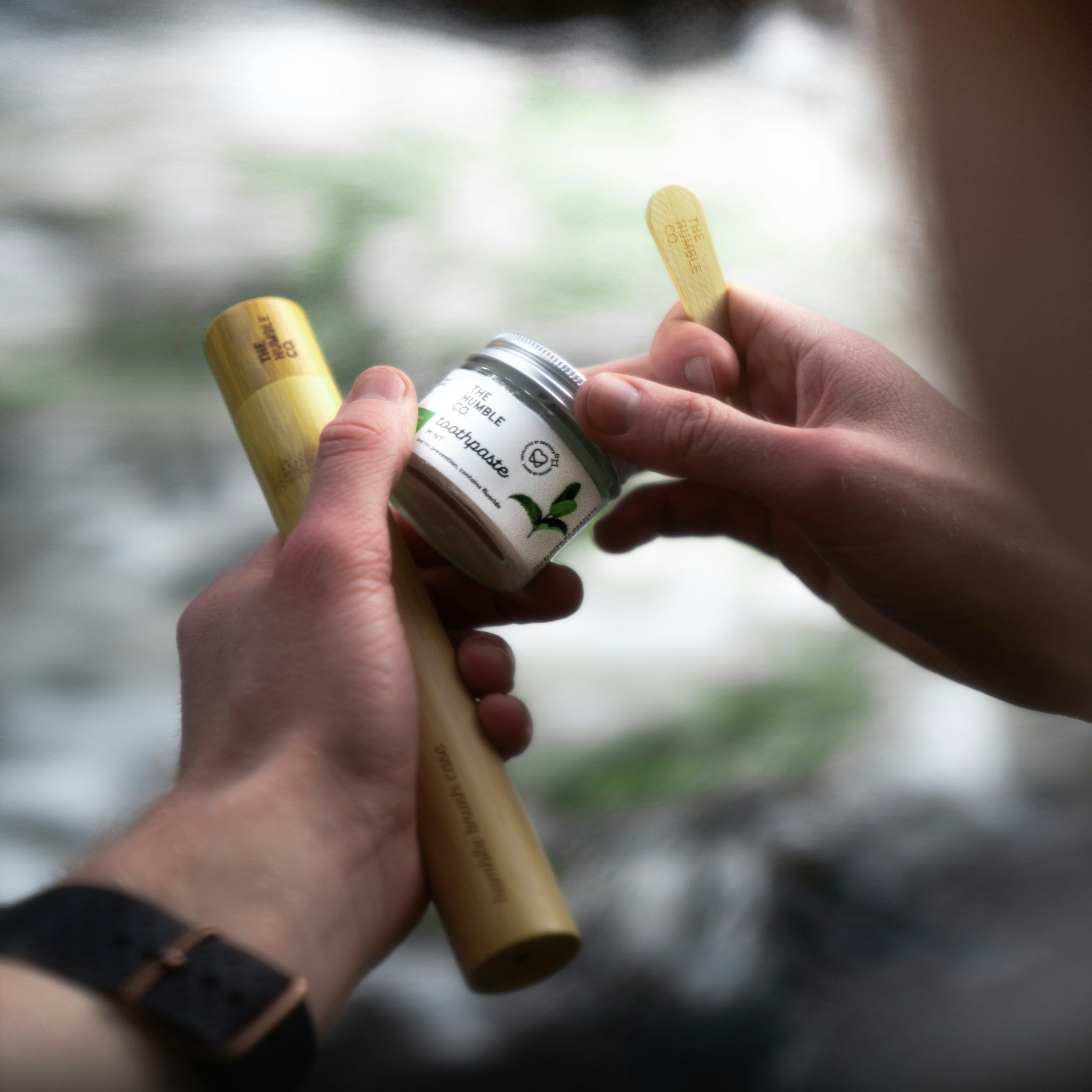Have you ever thought about how your camping trips affect the environment? Camping is a wonderful way to connect with nature, but it is essential to consider the impact our activities can have on the ecosystems we enjoy so much. Thankfully, there are plenty of ways for you to reduce your environmental footprint while still enjoying the great outdoors.
Understanding Your Environmental Impact
When you camp, various elements contribute to your overall environmental impact. This includes the resources you consume, the waste you generate, and how your activities affect the surrounding ecosystem. Understanding these contributions is the first step toward making more sustainable choices.
What Does It Mean to Camp Sustainably?
Sustainable camping involves making intentional choices that protect the natural environment. This means utilizing resources judiciously, leaving no trace, and ensuring that wildlife and habitats remain undisturbed. By being mindful of your actions, you can help preserve the beauty of nature for future generations.
Planning Your Trip
Before you pack your gear, it’s vital to plan your camping trip with sustainability in mind. A little forethought can go a long way in minimizing your impact.
Choose the Right Location
Selecting a camping spot is the foundation of a sustainable trip. Opt for established campgrounds or sites to avoid damaging pristine areas. These locations usually have designated trails and facilities that help manage human impact. You can use various online resources to find suitable campsites and ensure they align with your eco-friendly goals.
Timing Matters
Consider the time of year when you’re planning your trip. Avoiding peak seasons can help reduce overcrowding. When places are less busy, it helps all of us to minimize trail erosion, wildlife disturbance, and general wear on the environment.
Sustainable Transportation
How you get to your camping location can significantly impact your environmental footprint. If you can, carpool with friends or family to reduce emissions. Public transportation is also an eco-friendly option if it’s available in your area.
This image is property of images.unsplash.com.
Packing Smart
What you pack for your camping journey can also influence your environmental impact. You want to bring what you need, but also be mindful of waste and sustainability.
Choose Eco-Friendly Gear
Investing in eco-friendly camping gear not only supports sustainable manufacturing practices but often results in higher-quality products. Look for items made from recycled materials, or those that emphasize durability. This way, you won’t have to replace them as frequently, reducing waste over time.
Minimize Waste
When packing, think about single-use items and how you can avoid them. Bring reusable containers, utensils, and bags. Not only is this more sustainable, but it also often saves you money. Consider preparing meals at home, which can further help reduce waste.
Pack Light
With camping, every ounce counts, especially if you’re hiking to your site. A lighter pack not only makes your trip easier but also may reduce fuel consumption if you’re driving. Evaluate what gear is essential and leave behind the extras.
Leaving No Trace
One of the most critical principles of sustainable camping is the Leave No Trace philosophy. It encompasses seven essential guidelines that every camper should practice.
Know Before You Go
Always research the area you plan to visit. Understanding local regulations, protected areas, and guidelines will help you avoid unintentional harm. Each environment has its own set of rules to ensure it remains pristine, and being informed is a significant part of camping sustainably.
Travel and Camp on Durable Surfaces
Staying on established trails and camping in designated areas helps prevent habitat destruction. Durable surfaces include rocks, gravel, and established campsites. Avoid trampling on delicate vegetation, which can take years to recover.
Dispose of Waste Properly
Always take your trash with you. This includes food scraps, which can attract wildlife and lead to dangerous situations. Familiarize yourself with the “pack it in, pack it out” principle to ensure that you leave the area as you found it.
Leave What You Find
It might be tempting to take a gorgeous rock or piece of wood home as a souvenir, but removing items from nature can disrupt ecosystems. Instead, take photos and memories while leaving the natural environment intact.
Minimize Campfire Impact
If you’re allowed to have a campfire, choose established fire rings to avoid scattering ashes and damage to the ground. Use small, dead wood collected on the ground instead of chopping down live trees. Most importantly, ensure your fire is completely extinguished before leaving.
Respect Wildlife
Keep a safe distance from any wildlife you encounter. Feeding animals disrupts their natural behaviors and can lead to them becoming reliant on human food. Observe them quietly from afar, and store food securely away from your camps.
Be Considerate of Other Visitors
Remember, you’re not the only one enjoying nature. Keep noise levels down, and respect the preferences of fellow campers. By being courteous, you can contribute to a positive experience for everyone.
This image is property of images.unsplash.com.
Sustainable Cooking Practices
Cooking while camping is a true joy, but there are ways to make it sustainable too.
Choose the Right Cooking Methods
Opt for cooking methods that use renewable resources. A camping stove is often more efficient than a campfire and can help minimize your impact. Some eco-friendly camp stoves run on biodiesel or other renewable fuels.
Plan Your Meals
Meal planning is an excellent way to reduce food waste. By preparing a menu beforehand, you can bring exactly what you need and avoid overpacking unnecessary food. Choose ingredients that can be used in multiple meals to minimize leftovers.
Bring Eco-Friendly Cooking Supplies
Invest in camping cookware that is durable and made from sustainable materials. For instance, look for stainless steel items rather than single-use plastics.
Compost When Possible
If you can, bring along a small container to collect food scraps. When you return home, you can compost them or dispose of them appropriately. This reduces landfill contribution and enriches the soil.
Water Conservation
Water is a precious resource, especially in natural environments where it may be scarce. Using it wisely during your camping trip can significantly lessen your environmental footprint.
Understand Local Water Sources
Familiarize yourself with local water sources. If you’re near a river or lake, consider bringing a water filter or purification tablets. Avoid contaminating water sources with soap or waste from your camps.
Use Minimal Water for Cleaning
When it comes to washing dishes or personal hygiene, always use a small amount of water and biodegradable soap. Use a basin to contain runoff and keep soap away from water sources. Remember to wash at least 200 feet away from lakes, rivers, or streams.
This image is property of images.unsplash.com.
Eco-Friendly Activities
There are plenty of activities you can engage in while camping that respect the environment.
Engage in Interpretive Programs
Many parks and campgrounds offer educational programs and activities, such as naturalist-led hikes or workshops. These programs often promote respect for nature and offer insights into the local ecosystem.
Go Wildlife Watching
Instead of disturbing wildlife, spend time quietly observing them. Bring binoculars for bird watching or photographing animals from a distance. This not only adds to your camping experience but also raises awareness about wildlife preservation.
Practice Nature Journaling
Bring a notebook and take some time to reflect on your surroundings. This can be a peaceful way to connect with nature, appreciate its beauty, and even document your learning about flora and fauna.
Volunteer for Trail Maintenance
Some camping areas offer opportunities for visitors to help maintain trails or clean up areas. Getting involved not only helps the environment but allows you to connect with the local community and fellow nature lovers.
Educating Others
Once you adopt more sustainable practices while camping, you can share your knowledge with others to encourage mindful camping behavior.
Lead by Example
When you camp with friends or family, demonstrate eco-friendly practices. Show how it’s possible to enjoy the outdoors while still respecting it. Your actions can inspire others to adopt similar habits.
Share Your Experiences
Whether it’s through social media or casual conversations, sharing your experiences can raise awareness about sustainable camping. Encourage others to plan their trips with the environment in mind and celebrate their efforts.
Sustainable Camping Gear
Investing in the right gear can enhance your camping experience and reduce your environmental impact considerably.
Eco-Friendly Sleeping Gear
Look for sleeping bags and pads made from recycled materials or eco-friendly designs. Natural fibers like hemp or from manufacturers focused on sustainability can also provide comfort without compromising the environment.
Solar-Powered Gadgets
Consider bringing solar-powered chargers for your devices. These eco-friendly gadgets can help keep your electronics charged without relying on disposable batteries or generators.
Biodegradable Toiletries
Use biodegradable soaps, shampoos, and toiletries while camping. These products are designed to break down naturally, minimizing your impact on water sources.
| Gear Type | Eco-Friendly Options |
|---|---|
| Sleeping Gear | Sleeping bags made from recycled materials |
| Cooking Supplies | Stainless steel or cast iron cookware |
| Lighting | Solar lanterns or LED lights |
| Toiletries | Biodegradable soap and shampoo |
What to Do When You Leave
After enjoying your camping trip, think about the steps you can take to continue reducing your environmental impact once you return home.
Make a Habit of Sustainable Practices
Incorporate what you’ve learned during your camping trip into your everyday life. From reducing waste to being conscious of energy consumption, every little action can contribute to a more sustainable lifestyle.
Get Involved Locally
Look for local environmental organizations where you can contribute your time or resources. Participating in clean-up events or conservation efforts can further your commitment to preserving the natural environment.
Share Your Knowledge
Spread the word about sustainable camping among your friends and family. Encourage them to adopt eco-friendly practices when they spend time in nature. The more people aware of their impact, the greater positive change can occur.
Conclusion
Camping provides an incredible opportunity to immerse yourself in nature, unwind, and recharge. By being mindful of your environmental impact, you not only enhance your own experience but also contribute to the preservation of the great outdoors. Remember, every small action counts. By planning with sustainability in mind and adhering to eco-friendly principles, you can enjoy all the beauty of nature while ensuring it remains intact for future campers. Your efforts in reducing your environmental impact can inspire others to do the same, creating a ripple effect of positive change in communities everywhere. So as you gear up for your next adventure, consider how you can tread lightly on the earth. Happy camping!






